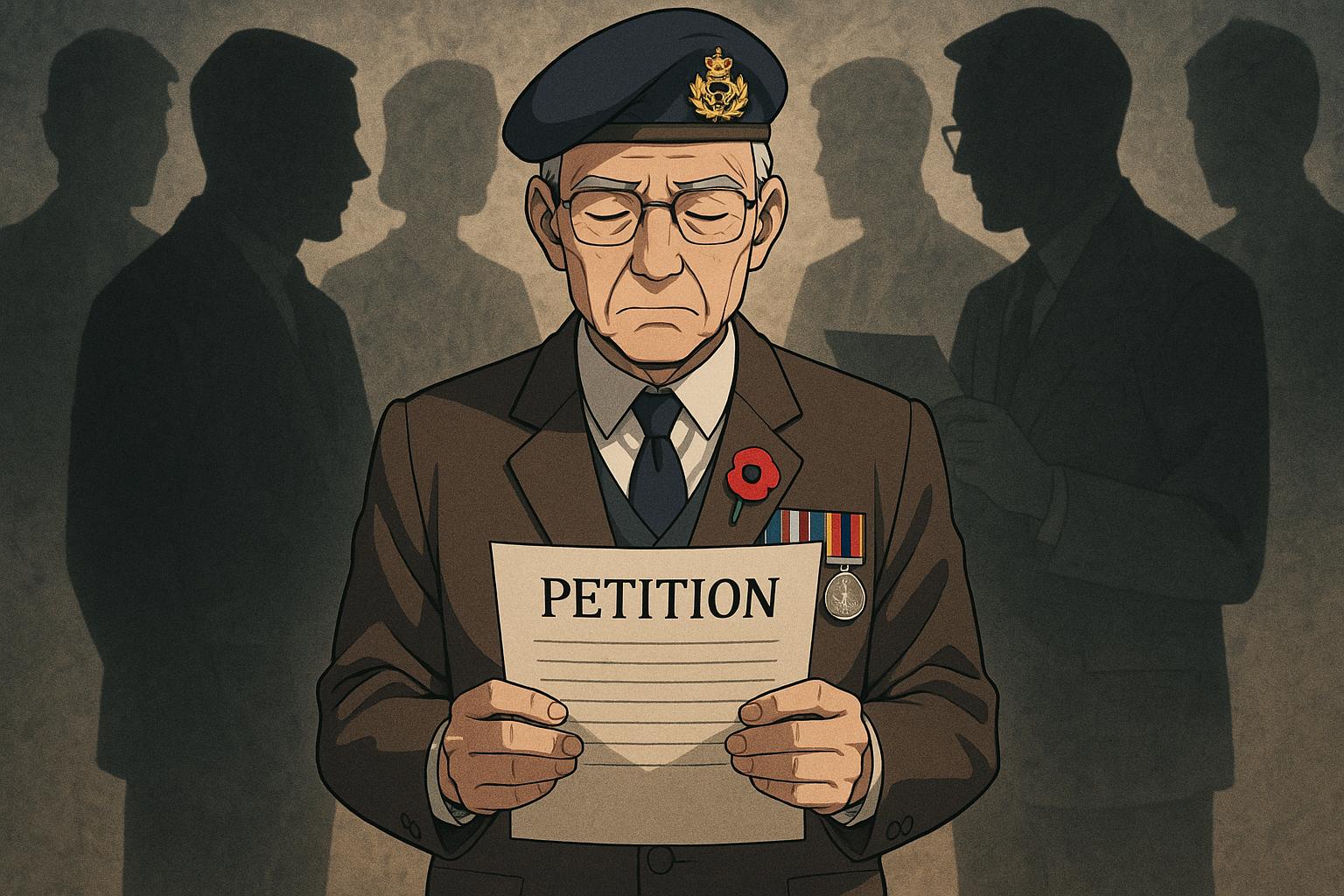British veterans who served during the Northern Ireland Troubles are facing increasing pressure not to support a significant petition aimed at protecting them from prosecution. This troubling situation has been brought to light in discussions within the House of Commons, as Conservative MP Sir David Davis raised concerns about bureaucratic interference in veterans’ rights to engage in democratic processes.
The petition in question, which has garnered over 87,000 signatures, is entitled “Protect Northern Ireland veterans from prosecutions.” It calls for the government to maintain protections for veterans who carried out their duties during “Operation Banner,” which lasted from 1969 to 2007, amidst the complexities of addressing terrorism. Sir David alleged that directives have been issued to regimental associations, instructing them to erase any references to the petition from their social media channels. He expressed dismay at what he perceives as a silencing of voices advocating for veterans’ rights. “Veterans’ voices must not be silenced by bureaucratic interference, so can you advise me whether it’s appropriate to pressure regimental associations to remove content supporting democratic participation?” he questioned during a parliamentary session.
This unfolding drama occurs against the backdrop of the problematic Northern Ireland Troubles (Legacy and Reconciliation) Act 2023, enacted by the previous Conservative government. This legislation has effectively halted numerous civil cases and inquests regarding Troubles-related deaths, and it faced significant backlash for its perceived bias favouring perpetrators of violence over the victims and their families. Following the Labour government's assumption of power, there has been a commitment to repeal certain provisions of this contentious legislation, reflecting the necessity for an overhaul in how historical grievances are addressed.
Defence Secretary John Healey acknowledged the concerns raised by Sir David, promising to investigate the matter further. The Labour government appears keen to address the fears of veterans regarding potential bias against security forces. The previous administration’s changes have prompted further scrutiny as the legal framework for addressing the legacy of the Troubles is in a state of flux.
Complications mount as the government navigates continuing legal and ethical considerations surrounding the Legacy Act. Reports indicate that former Sinn Féin leader Gerry Adams is seeking compensation for his imprisonment during the Troubles, a move discouraged by Labour leader Sir Keir Starmer, who has drawn a line against such claims, suggesting that payouts to individuals associated with terrorism would be an inappropriate use of public funds in light of the current economic climate. Starmer's comments underscore a growing tension between different narratives of the conflict's history and the realities of seeking justice for all involved.
The need for a balanced approach to legacy issues has been articulated by various stakeholders. Veterans Commissioner David Johnstone has voiced concerns about the inquest processes, suggesting they disproportionately focus on actions of state actors, potentially leading to a sense of injustice within the veteran community. This perception of imbalance is further supported by criticism of the Independent Commission for Reconciliation and Information Recovery (ICRIR), which was established as an alternative mechanism for seeking truth and justice, yet has faced doubts regarding its adequacy and fairness.
The Labour government’s intentions to repeal and replace the Legacy Act suggest a shift towards more equitable consideration of all parties affected by the Troubles, with the aim of re-establishing inquests and civil processes. However, the ICRIR remains as a tool for reconciliation, prompting debates about its future effectiveness.
Veterans remain vocal in expressing their dissatisfaction with the treatment they have received, feeling abandoned by a system meant to protect them. Many attended protests in London, decrying the government's handling of veteran affairs and calling for recognition of their sacrifices. The narratives emerging from these protests illustrate deep-seated frustrations and a call for legislative clarity, as many veterans feel unjustly targeted for actions taken during their service.
As the government contemplates its next steps, the challenge remains to address historical grievances while ensuring that the voices of those who served their country are neither diminished nor disregarded in the ongoing dialogue about the legacy of the Troubles. The path forward will require careful navigation, balancing accountability with compassion, as the spectre of the past continues to complicate the present.
Reference Map
- Paragraph 1: [1]
- Paragraph 2: [1]
- Paragraph 3: [1], [3]
- Paragraph 4: [1], [6]
- Paragraph 5: [2], [5]
- Paragraph 6: [4], [6]
- Paragraph 7: [7]
Source: Noah Wire Services
